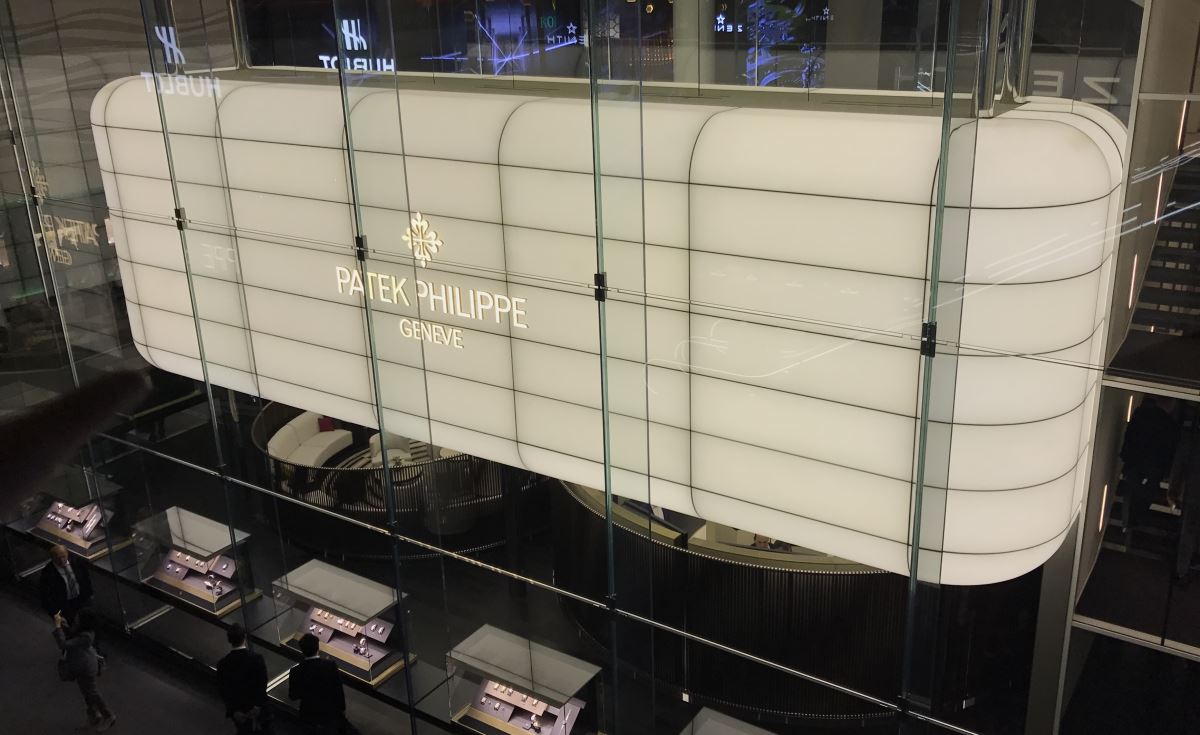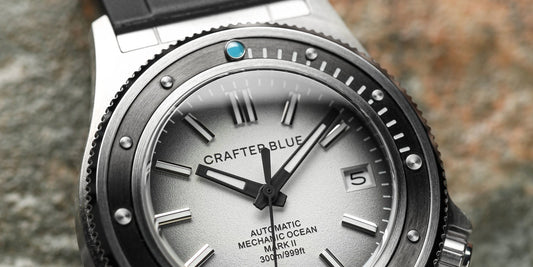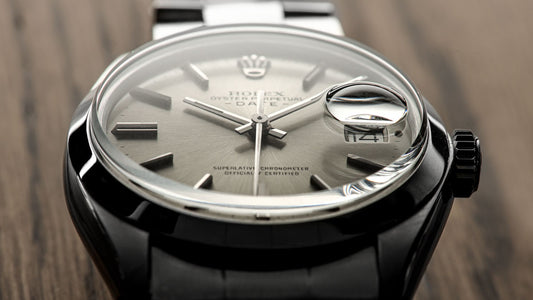What does the future of this iconic watch trade fair look like? Explore Tim's thoughts here...
Back in November 2017, it was announced that Baselworld 2018 was going to be up to 50% smaller, with 3+ halls being closed, only 600 exhibitors and the show dates were cut down by two days. This news may have looked like the start of the end for the iconic show but an official statement from Baselworld representatives explained they recognised the show needed a change and is currently undergoing an update to keep up with the ever-changing tech-focused world, which re-assured people. Now that Ben and I have come back from Baselworld 2018, I've had some time to gather my thoughts and evaluate both the current state of the industry, the general consensus from consumers online and my experiences from this year...
One of the first things I did when putting this story together was to go back to the first announcement from Baselworld officials. There's an interesting sentence in their statement which before visiting the show didn't mean much to me, but now after visiting the show, talking to brands big and small, I believe the importance of the statement is heightened.
'The Baselworld 2018 concept was developed in close co-operation with the most important exhibitors'
After talking to many of the smaller brands, who don't pose a big marketing budget, or don't have a team designated specifically for conventions and shows, deciding if they're going to display at Baselworld is a huge decision.
'We are paying the same fee to exhibit as we have been for the past few years, but now our booth is now a lot smaller and we have moved to a completely different part of the show, if it wasn't for the sheer amount of productive meetings we have, we would struggle to justify the cost'
As exhibiting costs increase, for a booth half the size, in a completely different hall, the smaller brands were the same ones who told me they don't feel they are getting any help or encouragement from Baselworld to return in the future. Many of the smaller brands and suppliers from across the globe look towards the bigger name brands such as the Breitling, Patek and Omegas to see if they are exhibiting and will (in some cases) rely on the decision of those brands to determine their own future. The main reason for this is that big names have a huge amount of pulling power over the general public. If people have the opportunity to see the latest release from Rolex in person, there is a higher chance they will carry on walking around the show; discovering smaller brands that they can they engage with.
This focus from Baselworld on developing the show in 'close co-operation with the most important exhibitors', shows to me their intentions for the future of the show, particularly with the exclusion of smaller brands. Combine this with my conversations with the smaller exhibitors and learning they're not feeling the love, I wouldn't be surprised if we see the show becoming something reserved exclusively for the larger brands of the world and a new event might be formed for the smaller ones. It seems this initial statement raises more uncertainty than I first realised and I am now anticipating large changes for Baselworld.
Walking around the show this year, it didn't take long for Ben and I to pick up on the two rumours that Breitling and Patek weren't going to be at next year's show. When quizzing the smaller brands more about this, you could really feel their concern in each answer for their future as a brand at Baselworld. As this year's show came to a close, Breitling were quick to release a statement reassuring people that they will be there in 2019, securing a short-term future for Baselworld and potentially smaller brands presences as we know it. Not only did they announce their agreement extension by one year, but George Kern himself hit on a very valuable and key message for not just Baselworld but also the city, local business and hotels:
"We also want to encourage the hotels in Basel to invest in their property and infrastructure so that they can offer modern, contemporary lodging to international visitors at reasonable prices.
The quality of the hotels must be commensurate with Basel’s desire to be a renowned, sustainable location for hosting trade fairs. For this reason, prices at restaurants must also remain consistent before, during, and after the trade fair."
I think Kern has hit the nail on the head here. If you've ever looked to stay in Basel at the same time the show is on, you will understand the astronomically increased prices of hotels, restaurants, pubs and bars. In most situations, a lot of people would say 'that's business, that's just how it works' but it seems Kern feels like this is an important factor, drastic enough to be having noticeable damage on the show.
Kern goes on to mention that he thinks there should be a place specifically for collectors which I believe could be a fantastic feature and would hugely enforce the strong sense of community that we all know exists in the watch world. When I read about this, I instantly imagined an area of the show allocated for people to socialise, bring watches from their collection, talk openly to fellow enthusiasts about every new release; it would make for a great networking environment for both members of the press and passionate enthusiasts. This kind of area could also be a place for some of the smaller brands to go and discuss in a lot more relaxed, friendly environment for the general public and brands alike.
For me, Baselworld 2018 was my second visit to the show and for Ben his third, there were a few key things we both picked up on which we feel could be improved on going forward. The first point for me would be regarding the accessibility of the new releases. In every piece of press coverage for Baselworld, you will see people handling and trying on the watches as well as talking to brand representatives and heads of many departments in the company. The truth of the matter is unless you're a member of the press, a friend of the brand or you have money to spend you won't be getting anywhere near any of the new releases (unless it's through a window). Excluding the incredible independent brands that can be found in the Les Ateliers section of the show, the only brand that had examples of their watches out and visible for the general public was Oris.
Much like you would find in mobile phone shops, Oris has stands set up where the watches were available for anyone to pick up, try them on and have a good chat with a brand representative. One of the most noticeable thing about this stand? It was one of the busiest at the show with people trying on watches, enjoying the open free bar for all to come and have a drink, people were sat down having a chat to others and the general atmosphere of the stand was incredible. I personally feel if more brands took a lot of inspiration from Oris and offered a similar service, they would find many more engaging enthusiasts showing interest in their releases, more publication in the press and an overall customer interest improvement.
Atmospheres like Oris had created, to me reflected what George Kern outlined in his post Baselworld statement, a place where everyone attending can get out of the show what they want, a place where watches and horology is celebrated by everyone not just by the very fortunate ones like ourselves being members of the press or friends of the brand.
SIHH is a very similar show to Baselworld, it has a more focus approach by targeting haute horology brands and taking part a few months before Baselworld in Geneva. The show has received a lot of praise in recent years for it's refreshing approach to trade fairs. Probably the biggest praise they received was in the form of Hermes, Ulysse Nardin and Girard-Perregaux ditching Baselworld for SIHH. Even after a quick look at the services SIHH services offer online, it's fairly clear they are very aware what visitors to the show are visiting for. One of the most impressive services I read about is their 'White Boxes'. These are essentially pop up mini studios designed to work perfectly for live streaming, filming of videos, interviews or even product shots. This is every blogger or online journalist's dream. The press centre at SIHH also offers one single memory stick with every brand's press packs, images and information on new releases all in one place. Not only is there what seems to be a more developed version of the press centre when comparing to Baselworld, but there is also a business centre where visitors can make the most of the internet, self-service computers, printers, photocopiers and fax machines. It seems the benefits of a smaller, more coherent set up seems to be paying off for SIHH.
It seems Baselworld is currently at a very important, pivotable point in its lifespan. The way consumers receive new information is constantly changing and evolving with most developments being digital ones. Social media presence for brands is becoming a huge marketing and networking outlet for them; Kern meeting with Instagram accounts to view vintage Breitling models for inspiration, Patek Philippe joining the world of Instagram recently and of course, Omega with their #SpeedyTuesday Limited Edition watch. It seems the culture around watches is developing, communities are building and it is helped along with platforms such as Instagram, Facebook and YouTube. There will always be a level of elitism surrounding luxury watches due to the pure fact they are, well, luxury.
Very few of us rely on watches as much as divers did back in the 60's, or racing drivers relied on chronographs. In a heavy technology-focused world we don't really NEED wristwatches as we currently know them, no one needs to spend tens of thousands of pounds on a watch that tells the time (in most cases) worse than any piece of current technology we own. In an age where virtual assistants, cryptocurrency and AI is the new norm, the humble wristwatch with its outdated ways is surprisingly thriving. Is this a sign that with all the new advancements we are experiencing, people are looking towards watches as a way of owning a piece of history? There is certainly a growing interest in horology, but when the likes of SIHH are pushing a more refined, streamlined trade show that is working in synergy with the modern tech-oriented world, It feels like Baselworld in its current state could be left behind and become obsolete. I suppose only time will tell...















